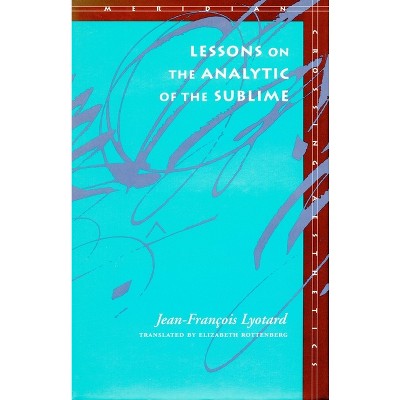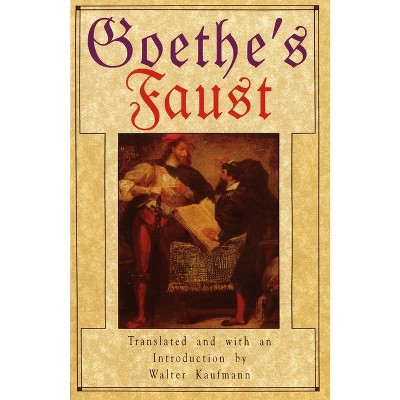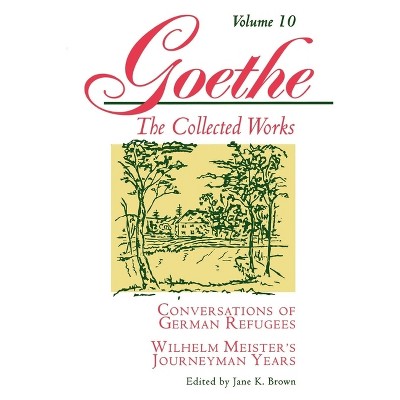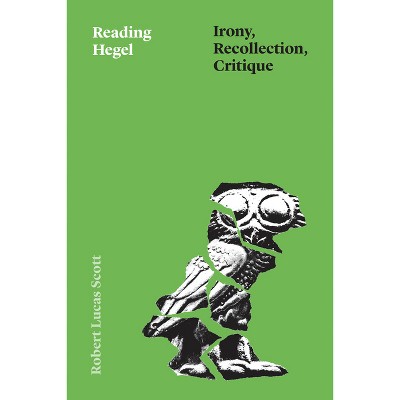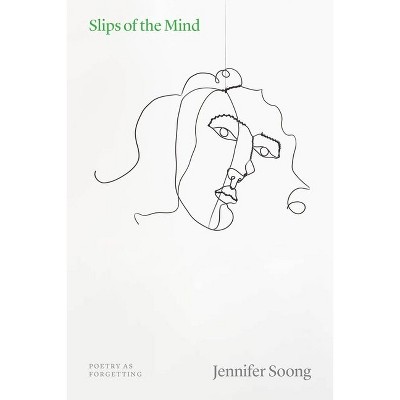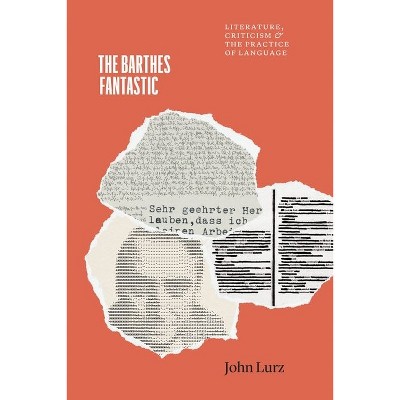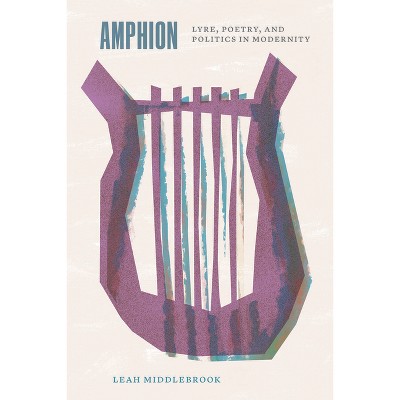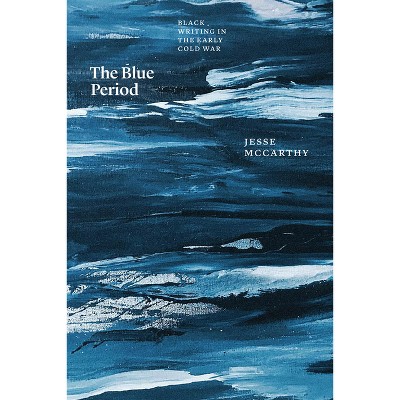Sponsored

Cartesian Poetics - (Thinking Literature) by Andrea Gadberry (Paperback)
$30.00
In Stock
Eligible for registries and wish lists
Sponsored
About this item
Highlights
- What is thinking?
- About the Author: Andrea Gadberry is assistant professor at New York University at the Gallatin School of Individualized Study and in the Department of Comparative Literature.
- 224 Pages
- Literary Criticism, General
- Series Name: Thinking Literature
Description
About the Book
"The philosopher Renâe Descartes is usually associated with cold reason rather than with feeling, to the extent that Rousseau charged his philosophy had "slashed poetry's throat." Andrea Gadberry argues, on the contrary, that Descartes' thought was crucially enabled by early modern poetry and rhetoric. Where others have seen Cartesian philosophy as a triumph of disembodied reason, Gadberry points to Descartes's own impassioned and poetic negotiations with the difficulties of thought and its limits. Gadberry's approach to seventeenth-century writings poses questions urgent for the twenty-first: What is thinking? What does it feel like? What is it good for? Her book reveals an implicit poetics in Descartes' texts, from the puzzling forms of riddle, emblem, and anagram to the antecedents of more familiar, Romantic and post-Romantic poetry in love lyric and elegy. Gadberry's argument is grounded in the rich poetic culture of Descartes' time, even as it traces a biography of thinking. Helping us read classic moments of philosophical argumentation in a new light, this elegant study also expands outward to redefine thinking in light of its poetic shape. This book will be the first volume published in the new Thinking Literature series edited by Nan Z. Da and Anahid Nersessian"--Book Synopsis
What is thinking? What does it feel like? What is it good for? Andrea Gadberry looks for answers to these questions in the philosophy of René Descartes and finds them in the philosopher's implicit poetics. Gadberry argues that Descartes's thought was crucially enabled by poetry and shows how markers of poetic genres from love lyric and elegy to the puzzling forms of the riddle and the anagram betray an impassioned negotiation with the difficulties of thought and its limits. Where others have seen Cartesian philosophy as a triumph of reason, Gadberry reveals that the philosopher accused of having "slashed poetry's throat" instead enlisted poetic form to contain thought's frustrations. Gadberry's approach to seventeenth-century writings poses questions urgent for the twenty-first. Bringing literature and philosophy into rich dialogue, Gadberry centers close reading as a method uniquely equipped to manage skepticism, tolerate critical ambivalence, and detect feeling in philosophy. Helping us read classic moments of philosophical argumentation in a new light, this elegant study also expands outward to redefine thinking in light of its poetic formations.Review Quotes
"Gadberry joins the chorus of recent scholars whose work rehabilitates Descartes from the role of 'the archvillain responsible for all of modernity's worst impulses.' Cartesian Poetics sits neatly alongside other reevaluations of Cartesian philosophy that take seriously his work on the passions and virtue."-- "Cleveland Review of Books"
"In this brilliant book, Gadberry thinks about the poetic forms that shape Descartes's thinking. Her close attention to form has perhaps led her to give similar consideration to the forms of academic writing, and the result is exemplary within that genre: the book is a pleasure to read. Throughout, Gadberry conducts a conversation with many of the thinkers and scholars who have thought with and against Descartes. . . . Cartesian Poetics offers a compelling new way of understanding an author whose claims--and style--remain provocative today."--Emma Claussen "H-France Review"
"An intricate, gripping new book. . . There is a strangeness--an uncanniness, even--to the Descartes emerging from Gadberry's treatment. It is a reading that is at once convincing and utterly unexpected: Descartes as upside-down, inside-out love poet. . . Cartesian Poetics is a coup all its own. It ought to change the way we read Descartes."--Ross Wilson "Los Angeles Review of Books"
"Gadberry's engaging book defends Descartes against the charge of being the evil genius of modernism. . . . What makes reading Gadberry's book a rewarding experience is not, as one might expect, a literary deconstruction of Descartes's text. . . It is rather the way in which, by bringing Descartes's carefully coded feelings to light, it humanizes both the philosopher and the twists and turns of thinking as such."--Christopher Braider "French Studies"
"Gadberry offers a dazzling reinterpretation of Descartes's relation to poetry. Written in beautiful and witty prose, this book argues that Cartesian philosophy is underpinned, shaped, and, in important ways, determined by the pressures and forces of literary genre: poetry is a vital form of thinking that is in no way confined to literary texts.. . . . [An] excellent and evocative book."
--Timothy M. Harrison "Critical Inquiry"
"Cartesian Poetics brilliantly integrates historical sensitivity and speculative boldness. Tracing a 'literary life of concepts' through the riddle, the love lyric, the elegy, and the anagram, Gadberry gives us a new history of Descartes's philosophical coming of age. Her nuanced close readings, which make dazzling use of wit as an engine of literary-critical investigation, awaken us to a conception of poetic form that lives in and between thoughts--that makes 'thinking, ' in the largest sense, possible."-- "Gerard Passannante, University of Maryland, College Park"
"Cartesian Poetics is an original, hard-nosed, gorgeously written, and compelling book. For a book on the aesthetics of thinking, it is suitably beautiful and intelligent. . . . Gadberry's artful reconstruction and probing of Descartes's sentences reveal the poetry flowing beneath and within his philosophy."-- "Jonathan Kramnick, Yale University"
About the Author
Andrea Gadberry is assistant professor at New York University at the Gallatin School of Individualized Study and in the Department of Comparative Literature.Dimensions (Overall): 9.0 Inches (H) x 6.0 Inches (W) x .44 Inches (D)
Weight: .62 Pounds
Suggested Age: 22 Years and Up
Number of Pages: 224
Genre: Literary Criticism
Sub-Genre: General
Series Title: Thinking Literature
Publisher: University of Chicago Press
Format: Paperback
Author: Andrea Gadberry
Language: English
Street Date: October 20, 2020
TCIN: 1006097102
UPC: 9780226723020
Item Number (DPCI): 247-40-7468
Origin: Made in the USA or Imported
If the item details aren’t accurate or complete, we want to know about it.
Shipping details
Estimated ship dimensions: 0.44 inches length x 6 inches width x 9 inches height
Estimated ship weight: 0.62 pounds
We regret that this item cannot be shipped to PO Boxes.
This item cannot be shipped to the following locations: American Samoa (see also separate entry under AS), Guam (see also separate entry under GU), Northern Mariana Islands, Puerto Rico (see also separate entry under PR), United States Minor Outlying Islands, Virgin Islands, U.S., APO/FPO
Return details
This item can be returned to any Target store or Target.com.
This item must be returned within 90 days of the date it was purchased in store, shipped, delivered by a Shipt shopper, or made ready for pickup.
See the return policy for complete information.
Frequently bought together
Trending Book Deals

Highly rated
$20.98
MSRP $30.00
Buy 2, get 1 free select books, music & movies
5 out of 5 stars with 9 ratings



